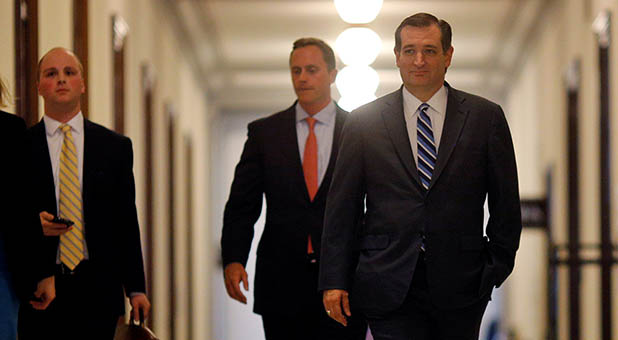What Will Happen to Ted Cruz’s Delegates?
As of this writing, U.S. Sen. Ted Cruz (R-Texas) still has 570 delegates bound to him for the first ballot of the Republican National Convention in mid-July.
By the time the convention rolls around, he won’t have that many, but exactly how many he will have is open to debate, particularly over what the word “withdraw” means. That word is used frequently in the various state rules governing delegate binding for the national convention, but it’s definition is ambiguous, at best.
Based on the rules of the various states that have voted so far, at least 89 delegates are likely headed to GOP front-runner Donald Trump from Cruz, Ohio Gov. John Kasich, and U.S. Sen. Marco Rubio (R-Fla.). Of those, 56 will come from Cruz’s hauls in Louisiana, Michigan, Missouri and Nevada.
Kasich will lose delegates from Michigan and Vermont. Rubio will lose delegates from Nevada.
None of those will damage Cruz’s standing on the nomination ballot at the convention—he should retain all of his eight delegate majorities required by Rule 40(b). There are another 166 delegates that could possibly roll over to Trump, depending upon the various states’ interpretations of the word “withdraw.”
Those delegates could prevent Cruz from being eligible for nomination, so to prevent as many as possible from transferring, the senator has sent letters to the various GOP leaders, informing them that while he has suspended his campaign, he remains an official candidate. Rubio has done the same, and Kasich is reportedly weighing his options.
Trump is currently 94 delegates short of the 1,237 needed to secure the GOP nomination on the first ballot.






































